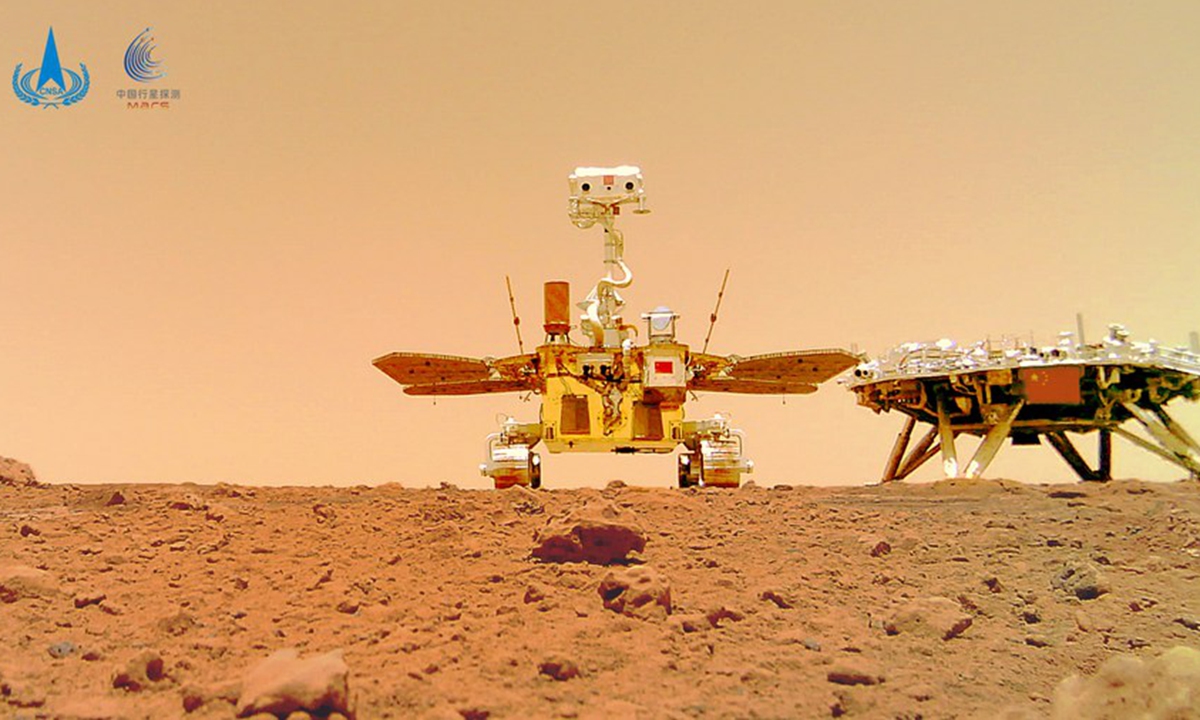SCI-TECH / AIR & SPACE
China’s Zhurong rover finds evidence of water on Mars: researchers

Photo released on June 11, 2021 by the China National Space Administration (CNSA) shows a selfie of China's first Mars rover Zhurong with the landing platform. (CNSA/Handout via Xinhua)
Chinese researchers have detected water-bearing minerals on Mars by analyzing data collected by the country's Zhurong rover that is currently trekking on the surface on the Red Planet.The research team with the Chinese Academy of Sciences' State Key Laboratory of Space Weather and the academy's Center for Excellence in Comparative Planetology led by fellow researcher Liu Yang, made analysis over Zhurong rover's data on sediments and minerals of the craft's site and concluded that evidence was found to suggest water persists on Mars.
Their findings have been published in details in the journal Science on Wednesday. And it marked a first around the world that water-bearing minerals on Mars have been detected by the short-wave infrared spectrometer on a Mars rover.
As part of China's Tianwen-1 Mars probe mission, Zhurong rover landed in a large plain in Mars' northern hemisphere called Utopia Planitia on May 15, 2021.
So far, Zhurong have been roving the landing site for a year and trekked nearly 2,000 meters on the Mars surface.
Mars was once warm and wet billions of years ago, but something changed and caused the planet to become the arid, frozen desert it is today. The red planet entered this period during what is called the Amazonian epoch, which began about 3 billion years ago and remains ongoing.
The latest findings on Zhurong rover's data suggested that water activities could be more frequent than what was once believed and that the landing site could store large deal of water in the form of minerals that could be exploited for the future human exploration to the Red Planet, media reports said.
Global Times



